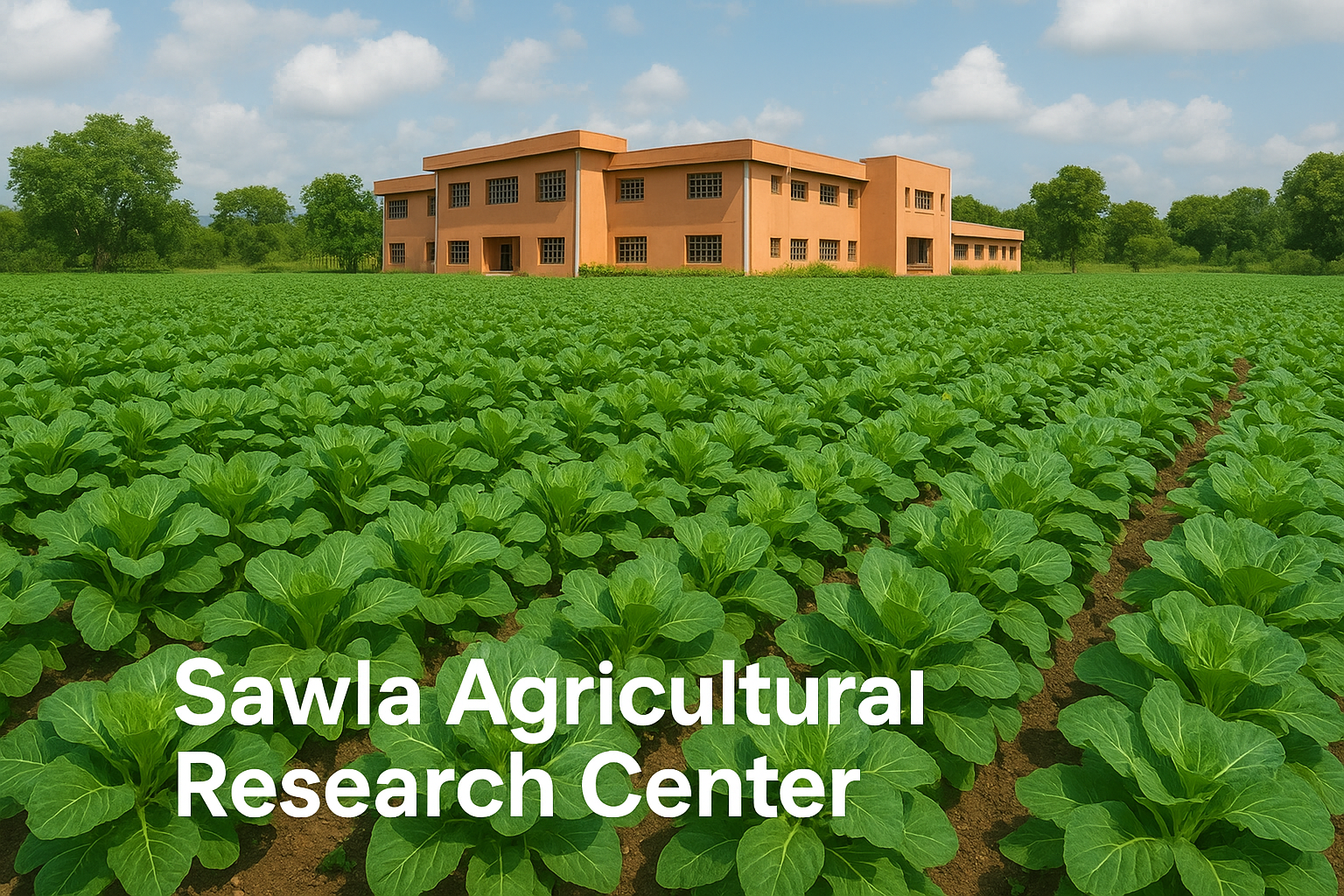
Sawla Agricultural Research Center
The Sawla Agricultural Research Center (SARC), established in the 2025 fiscal year, operates under the South Ethiopia Agricultural Research Institute (SEARI), a regional institution dedicated to advancing agricultural innovation in the South Ethiopia region. As one of two newly created research centers in 2025, SARC aims to address the unique agro-ecological and socio-economic challenges of the Goffa Basketo and Melo area, contributing to food security, sustainable natural resource management, and improved livelihoods for local farming communities.
Establishment and Context
The South Ethiopia Agricultural Research Institute (SEARI) emerged following the restructuring of the former Southern Nations, Nationalities, and Peoples' Region (SNNPR) agricultural research framework, adapting to the administrative reorganization of the region. SEARI oversees multiple research centers, including the well-established Areka Agricultural Research Center, known for its national coordination of Enset crop research. In 2025, SEARI expanded its network by establishing the Sawla Agricultural Research Center to enhance localized research and technology dissemination in the Goffa Zone, where Sawla is located.
SARC was created to address the specific agricultural needs of the Goffa Zone, characterized by diverse agro-ecologies ranging from lowland to midland areas, with unique climatic and soil conditions. The establishment of SARC aligns with Ethiopia’s broader agricultural transformation agenda, which emphasizes demand-driven, market-competitive technologies to boost productivity and resilience in farming systems.
Objectives
The Sawla Agricultural Research Center is guided by the following core objectives:
- Develop and Adapt Agricultural Technologies: Conduct research to create and promote crop varieties, livestock breeds, and natural resource management practices suited to the Goffa Basketo and Melo agro-ecological conditions.
- Enhance Food Security: Improve agricultural productivity to ensure sustainable food systems for local communities.
- Promote Sustainable Practices: Focus on environmentally sustainable approaches to soil, water, crop, livestock and biodiversity management.
- Strengthen Community Engagement: Collaborate with farmers, extension services, and local institutions to facilitate technology adoption and knowledge transfer.
- Support Regional Development: Contribute to the economic and social development of the South Ethiopia region through innovative agricultural solutions.
Research Focus Areas
SARC’s research portfolio is structured around six primary areas, reflecting SEARI’s broader mandate:
- Crop Research: Development and testing of improved crop varieties, with a focus on staples like maize and cash crops like coffee and spice, sesame, and root crops, as well as regionally significant crops such as Enset. Research emphasizes climate-resilient and high-yielding varieties to address local biotic and abiotic stresses.
- Livestock Research: Improvement of livestock breeds and management practices, including poultry, small ruminants, and cattle, to enhance productivity and disease resistance, tailored to the needs of pastoral and agro-pastoral communities in the Gofa Zone.
- Natural Resources Management: Studies on soil fertility, water conservation, and agro forestry to promote sustainable land use and mitigate the impacts of climate change.
- Agriculture economics
- Agriculture extension and communication
- Seed science research
Infrastructure and Capacity
Located in Sawla town, the administrative center of Gofa Zone, SARC in equipment with modern research facilities, including experimental fields, laboratories, and training centers. The center employs a multidisciplinary team of researchers specializing in agronomy, animal science, agricultural economics, and environmental science. SARC collaborates with national and international partners, including the Ethiopian Institute of Agricultural Research (EIAR), CGIAR centers, and regional universities, to leverage expertise and resources.
Community and Stakeholder Engagement
SARC prioritizes participatory research, engaging local farmers in the design and testing of agricultural technologies to ensure relevance and adoption. The center works closely with regional agricultural offices, extension agents, and community-based organizations to disseminate research outputs. Training programs and field days are organized to build the capacity of farmers and extension workers, fostering a knowledge-driven agricultural ecosystem.
Strategic Importance
The establishment of SARC in 2025 marks a significant step in decentralizing agricultural research in South Ethiopia, enabling targeted interventions in the Gofa Basketo and Melo. By addressing local challenges such as erratic rainfall, soil degradation, and limited access to improved seeds, SARC plays a critical role in enhancing agricultural resilience and supporting Ethiopia’s national goals of food security and economic growth.
Future Directions
Looking ahead, SARC aims to:
- Expand its research on climate-smart agriculture to address the impacts of climate variability.
- Strengthen partnerships with international research organizations to access advanced technologies and funding.
- Develop digital tools, such as decision support systems, to provide farmers with real-time agricultural insights.
- Enhance data management systems to ensure research outputs are systematically archived and accessible for future use.
The Sawla Agricultural Research Center represents a vital addition to the South Ethiopia Agricultural Research Institute’s network, bringing cutting-edge research and innovation closer to the farming communities of the Gofa, Basketo and Melo around. By focusing on localized solutions and sustainable practices, SARC is poised to make significant contributions to agricultural productivity, environmental sustainability, and the socio-economic development of the region.
To learn more about our ongoing projects and innovations, please visit the Sawla Agricultural Research Center Activities page.
